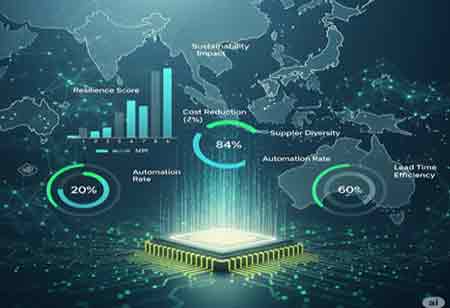THANK YOU FOR SUBSCRIBING
Advantages of Iot in Smart Cities
Businesses use IoT for creative management and remote control of operations. As a consequence, they can also monitor the latter from afar because data is constantly fed into applications and data storage.

By
Apac CIOOutlook | Thursday, April 22, 2021
Stay ahead of the industry with exclusive feature stories on the top companies, expert insights and the latest news delivered straight to your inbox. Subscribe today.
Fremont, CA : The term IoT (Internet of Things) refers to the exponentially increasing number of digital devices – now in the billions – that can connect and interact with one another over a global network/internet and be remotely controlled and managed. Only smart sensors and other devices are used in the Internet of Things. Weather data, for instance, is collected at the operational level of IoT. Cities can use data from the Internet of Things to help control traffic, reduce emissions, make better use of resources, and keep people healthy and clean.
Businesses use the IoT for creative management and remote control of operations. As a consequence, they can also monitor the latter from afar because data is constantly fed into applications and data storage. The IoT gives you the benefit of understanding what's going on ahead of time. Because of the low cost of IoT, previously unreachable practices can now be monitored and managed. The most significant benefit is financial, as this new technology can replace humans in control of tracking and maintaining supplies. As a result, prices can be reduced and optimized dramatically. IoT also allows for entirely new insights, such as the correlation of weather factors with industrial development.
The IoT offers services in various industries, including manufacturing, apparel, restaurants, healthcare, and education. Smart cities will share a collective platform, which fits best for small cities in particular. By sharing a network built on open data, the cloud-based design of the IoT solutions for smart cities is fitting. Small cities should work together to create a shared urban environment. Small and large smart city solutions are thus networked and managed via a central cloud platform. Finally, the size of a city does not impede being "smart." Intelligent technology will support cities in each group.





